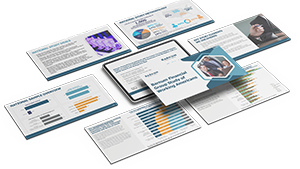
The implementation and rapid growth of artificial intelligence (AI) parallels that of other inventions. As well as scientific developments that have changed our society. Inventions such as Edison’s electric light, the Wright Brothers’ flight at Kitty Hawk. While we can attribute these near wonderous changes to individual inventors, we cannot do the same with AI.
The advent of artificial intelligence has quickly become a worldwide phenomenon, leaving its mark on all nations. Innumerable industries, including the financial services sector, are delving into AI. They are using it to accelerate and improve their business. The benefits of AI excite many to imagine the possibilities.
A Brief History
Even though the news about AI seems new, the concept has a relatively long history. One of the earliest systems to integrate perception and action was FREDDY. This was a stationary robot with a moving television eye and a pincer hand, constructed at the University of Edinburgh, Scotland, during the period 1966–73 under the direction of Donald Michie. FREDDY was able to recognize a variety of objects and could be instructed to assemble simple artifacts, such as a toy car, from a random heap of components.
However, AI made its first appearance, sort of, in the late 1930s and early 40s in truly dramatic circumstances. England was at war with Germany and trying desperately to crack the German code and after many setbacks, inventor Alan Turing was successful. Often considered the father of modern computer science, Turing was famous for his work developing the first modern computers, decoding the encryption of German Enigma machines, and detailing a procedure known as the Turing Test, forming the basis for artificial intelligence.
Advising the Financial Professionals
AI services are helping financial companies provide their clients with a financial concierge that knows their spending patterns and goals. A client will be provided a detailed review on how much they should spend, save, and invest based on the available insights provided by AI.
Financial professionals have already taken advantage of this, resulting in more productive interactions between clients and their personal finance professional. Marwan Khoury, Director of Business Intelligence at Barnum Financial Group tells us, “We are able to see daily which clients can benefit most from meeting with their financial professional in the near term.”
In Conclusion
Doubtless AI has had a major impact on the financial services sector. There are untold numbers of industries and companies implementing new concepts using AI, and the pace is accelerating. According to Bergur Thormundsson of Statista the market for artificial intelligence is expected to show strong growth in the coming decade. Its value of nearly 100 billion U.S. dollars is expected to grow twentyfold by 2030, up to nearly two trillion U.S. dollars.
It seems fair to say that AI will test imaginations as well as technical skills of financial professionals.



